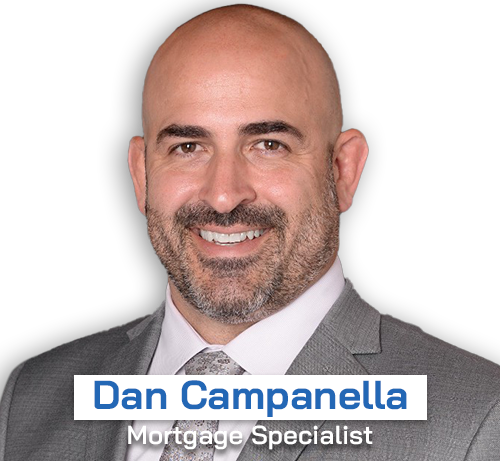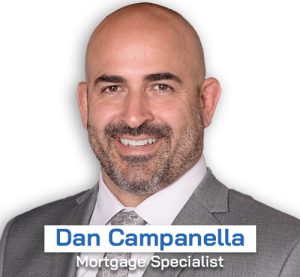
What is a Conventional Loan?
A conventional loan is a mortgage loan that is not backed by a government agency. Unlike government-backed loans such as FHA, VA, or USDA loans, conventional loans are originated, backed, and serviced by private mortgage lenders like banks, credit unions, and financial institutions. They make up the majority of mortgage loans and offer unique benefits to homebuyers.
Types of Conventional Loans
Conventional loans can be categorized into several types, each with its own features and criteria. Here are the most common types of conventional loans:
Conforming Conventional Loans
Conforming conventional loans adhere to the guidelines set by Fannie Mae and Freddie Mac, the two government-backed mortgage companies. These loans have maximum loan limits, which vary depending on the location. For example, the limit for single-family homes in 2022 is $647,200 ($970,800 in high-cost areas). If you need a loan exceeding these limits, you’ll need to consider a jumbo loan.
Jumbo Loans
Jumbo loans are non-conforming loans that allow borrowers to exceed the maximum lending limits set by Fannie Mae and Freddie Mac. They are suitable for purchasing high-value properties but often require a higher credit score, lower debt-to-income ratio, and a larger down payment compared to conforming loans.
Portfolio Loans
Portfolio loans are conventional loans that lenders keep in their own portfolio instead of selling them on the secondary market. These loans offer more flexibility compared to conforming loans, especially when it comes to credit scores and debt-to-income ratios.
Subprime Loans
Subprime loans are available for borrowers who have lower credit scores or higher debt-to-income ratios that don’t meet the requirements for conforming loans. However, they typically come with higher interest rates and fees to compensate for the increased risk.
Amortized Conventional Loans
Amortized conventional loans have a fully amortized repayment structure, meaning borrowers make fixed monthly payments over the loan term without a balloon payment. These loans can have either fixed or adjustable interest rates.
Adjustable-Rate Loans
Adjustable-rate loans, also known as ARMs, offer a fixed interest rate for an initial period, typically 3 to 10 years, before transitioning to an adjustable rate. After the initial period, the interest rate adjusts annually based on market rates. ARMs can be beneficial if you plan to sell or refinance your home before the adjustable rate kicks in.
Advantages of Conventional Loans
Conventional loans come with several advantages that make them an attractive option for many homebuyers. Here are some key benefits:
Lower Costs
With a high credit score, you can qualify for a low interest rate on a conventional loan. Additionally, once your loan-to-value ratio reaches 80%, you can request the removal of private mortgage insurance (PMI). In contrast, FHA loans require mortgage insurance for the life of the loan.
Higher Loan Limits
While conforming loans have limits, jumbo conventional loans allow you to borrow more if you need it. This flexibility can be beneficial if you’re purchasing a higher-value property that exceeds the conforming loan limits.
Flexibility for Lenders
Private mortgage lenders have more flexibility with conventional loans compared to government-backed loans. They are not bound by strict guidelines set by government agencies, allowing them to customize loan terms based on individual borrower circumstances.
Downsides of Conventional Loans
Alongside the advantages, there are also downsides to consider when opting for a conventional loan. Here are a few potential drawbacks:
Higher Credit Score Requirements
Conforming conventional loans typically require a higher credit score compared to government-backed loans. While some lenders may approve loans with a credit score as low as 620, a higher score will help secure more favorable terms.
Higher Down Payment Requirements
Although conventional loans offer down payment options as low as 3%, a larger down payment is often required to avoid private mortgage insurance (PMI). If you can’t put down at least 20%, you’ll likely have to pay for PMI, increasing your monthly mortgage costs.
Stricter Qualifying Guidelines
Conventional loans carry more risk for lenders compared to government-backed loans. As a result, lenders may scrutinize your financial situation more closely, including your income, debt-to-income ratio, and employment history. Meeting the lender’s eligibility requirements can be more challenging.
Qualifying for a Conventional Loan
To qualify for a conventional loan, you’ll need to meet certain requirements set by lenders. Here are the key steps to qualify:
Check Your Credit Score
Before anything else, check your credit score to understand where you stand. Most lenders require a minimum credit score of 620 for a conforming conventional loan. A higher score, ideally in the mid- to upper-700s, will improve your chances of securing favorable terms.
Save for a Down Payment
While conventional loans offer low down payment options, a larger down payment can help you qualify for a better interest rate. Aim to save at least 20% of the home’s price to avoid PMI and reduce your long-term mortgage costs.
Evaluate Your Debt-to-Income Ratio
Lenders consider your debt-to-income ratio (DTI) to determine your ability to manage mortgage payments. Generally, lenders prefer a total monthly debt-to-income ratio of 36% or lower. However, some lenders may accept a DTI of up to 43% or higher in certain cases.
Research Mortgage Lenders
Take the time to research and compare different mortgage lenders. Look at the rates they offer, their application process, and whether they provide online options. It’s recommended to consider at least three to five lenders before applying.
Get Preapproved
Obtaining a mortgage preapproval is crucial before starting the house-hunting process. A preapproval letter from a lender confirms that you’re eligible for a certain loan amount based on your financial information. It also helps you determine your budget and shows sellers that you’re a serious buyer.
Comparing Conventional Loans to Other Options
While conventional loans are popular, it’s important to consider how they compare to other mortgage options. Let’s explore a few comparisons:
Conventional Loan vs. FHA Loan
FHA loans are insured by the Federal Housing Administration and are suitable for borrowers with lower credit scores. FHA loans offer low down payment options, but they require mortgage insurance for the life of the loan. Conventional loans may be a better choice if you have good credit and can afford a larger down payment.
Conventional Loan vs. VA Loan
VA loans are exclusively available to veterans and current service members. They offer the benefit of no down payment requirement and no mortgage insurance. If you qualify for a VA loan, it can be an excellent alternative to a conventional loan.
Conventional Loan vs. USDA Loan
USDA loans are designed for low- to moderate-income homebuyers purchasing properties in eligible rural areas. Like VA loans, USDA loans offer no down payment requirement and competitive interest rates. However, they are limited to specific locations, making conventional loans a more flexible option for many.
Conventional Loan vs. Construction Loan
If you’re planning to build a home from the ground up, a construction loan may be necessary. Construction loans cover the costs of building the home and are typically converted into a conventional mortgage once construction is complete.
Conventional Loan vs. Jumbo Loan
Jumbo loans are non-conforming loans that exceed the loan limits set by Fannie Mae and Freddie Mac. They often require a higher credit score, larger down payment, and carry higher interest rates. Conventional loans are more suitable for borrowers who fall within the conforming loan limits.
Conventional Loans for First-Time Homebuyers
Contrary to popular belief, conventional loans are not exclusive to repeat homebuyers. First-time homebuyers can also take advantage of conventional loans, provided they meet the qualification requirements. Some lenders even offer special programs for first-time buyers, allowing for lower down payments and reduced PMI premiums.
Understanding Loan Limits
Loan limits for conventional loans vary depending on the location and property type. Conforming loans adhere to the guidelines set by Fannie Mae and Freddie Mac, which include limits on the maximum loan amount for different areas. Higher-cost areas have higher loan limits to accommodate for the increased property values.
Down Payment Requirements
Conventional loans offer a range of down payment options, allowing borrowers to customize their upfront costs based on their financial situation. While a 20% down payment is often recommended to avoid PMI, some conventional loan programs accept down payments as low as 3%. The required down payment depends on factors such as credit score, income, and the lender’s guidelines.
Private Mortgage Insurance (PMI)
Private Mortgage Insurance (PMI) is an insurance policy that protects the lender in case the borrower defaults on the loan. It is typically required when the down payment is less than 20% of the home’s purchase price. PMI adds to the borrower’s monthly mortgage payment until the loan-to-value ratio reaches 80%, at which point it can be removed.
Interest Rates on Conventional Loans
Interest rates on conventional loans vary based on factors such as credit score, loan term, and market conditions. A higher credit score generally leads to a lower interest rate. Borrowers can choose between fixed-rate mortgages, which offer a consistent interest rate throughout the loan term, or adjustable-rate mortgages (ARMs), which have an initial fixed rate for a specified period before adjusting annually.
Credit Score Requirements
Credit scores play a crucial role in qualifying for a conventional loan. While the minimum credit score required may vary among lenders, most require a score of at least 620 for a conforming conventional loan. A higher credit score increases the likelihood of securing more favorable terms and a lower interest rate.
Conventional loans offer flexibility, competitive interest rates, and a wide range of options for homebuyers. By understanding the various types of conventional loans, qualification requirements, and how they compare to other mortgage options, you’ll be well-equipped to make an informed decision when navigating the homebuying process. Remember to consult with mortgage lenders and professionals to explore the best options tailored to your specific needs and financial situation.
Contact Dan (954-336-1922) for a free consultation!
—
 About Dan Campanella – Mortgage Specialist
About Dan Campanella – Mortgage Specialist
Dan provides clients with years of proven experience and an abundance of financing options for their mortgages. His common sense approach and devotion to customer service is what sets him apart in the highly competitive mortgage industry. Dan prides himself on consistently delivering “referable services” to his clients, referral sources, and partners.

